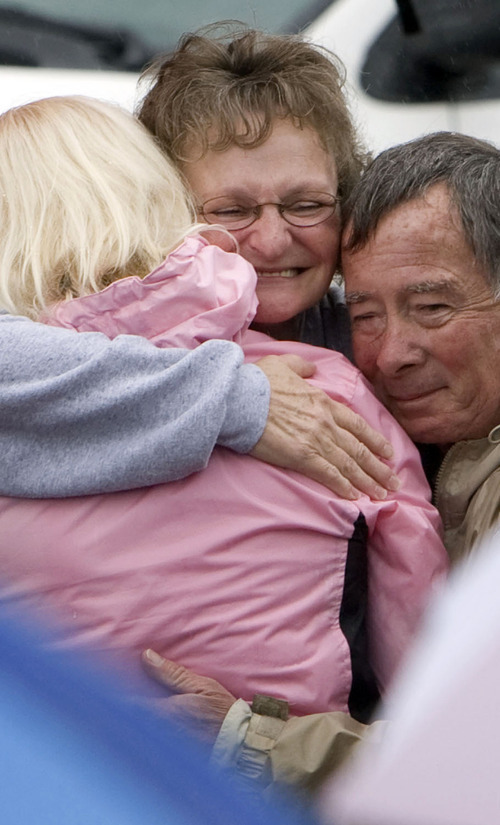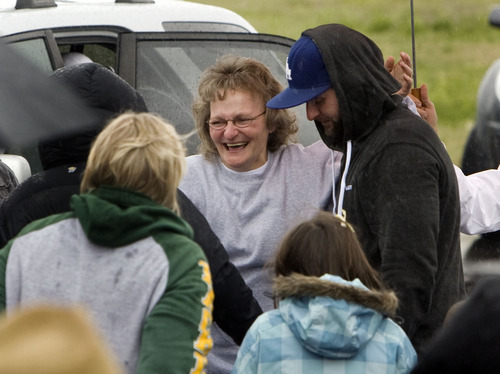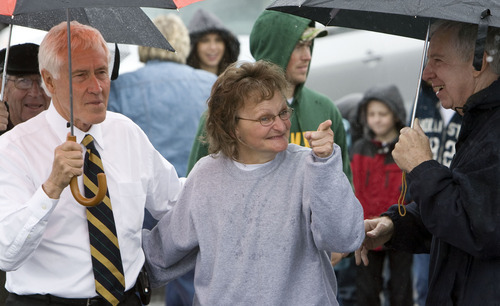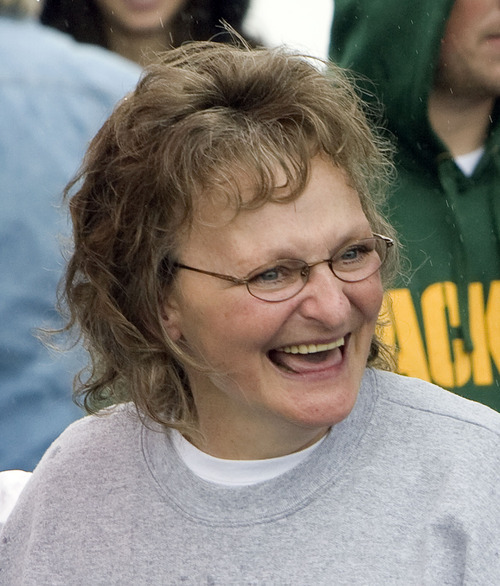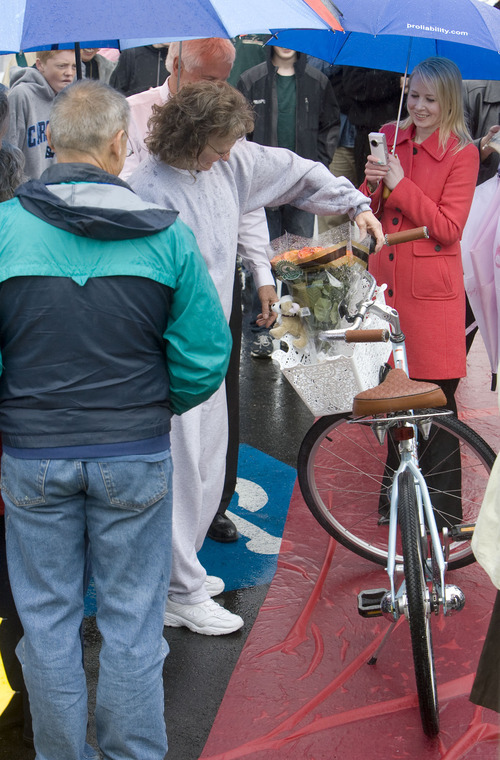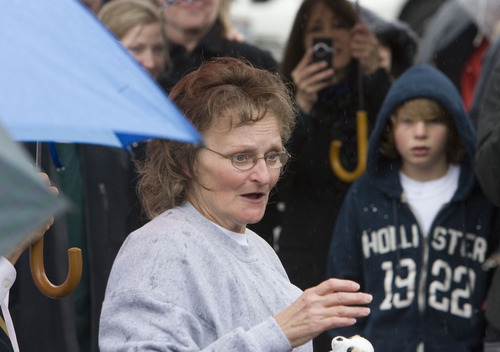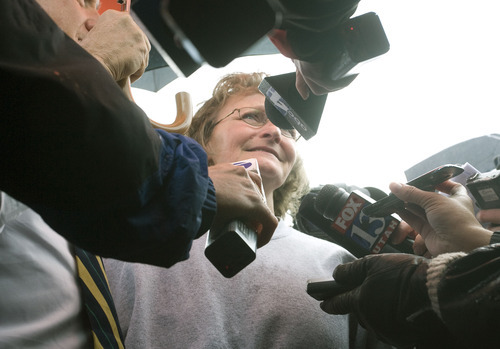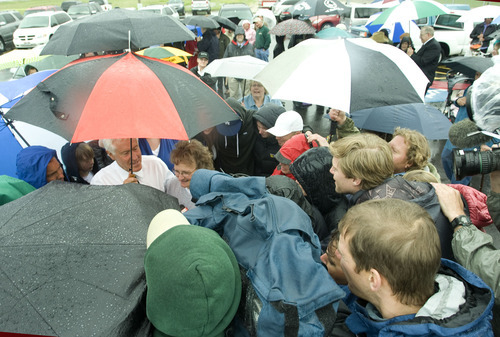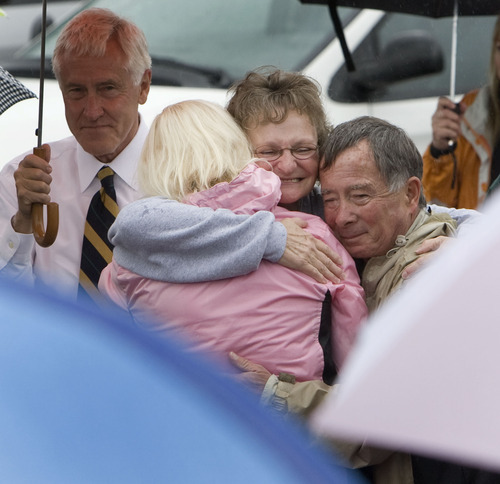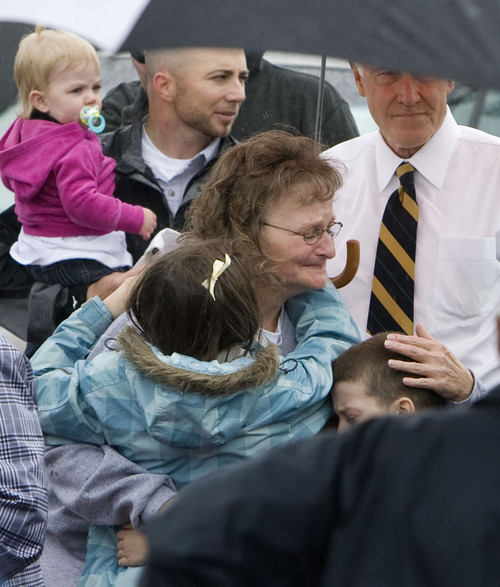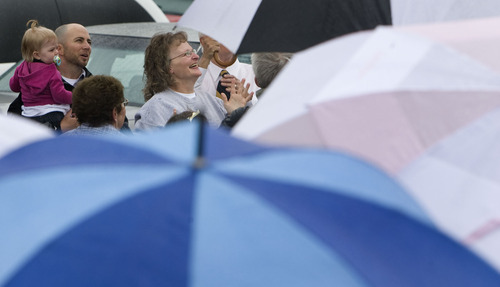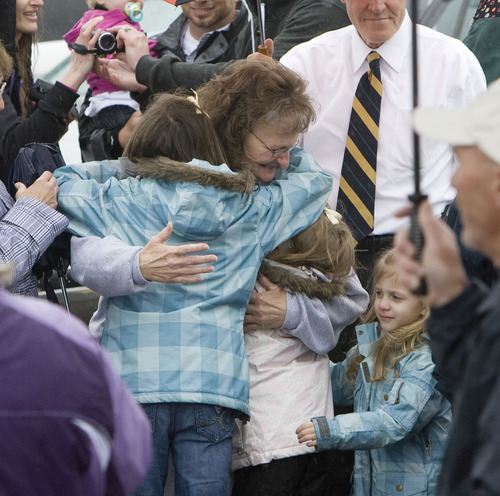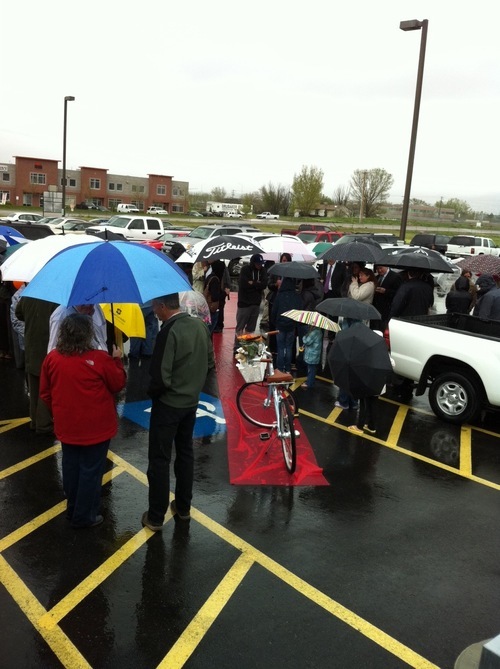This is an archived article that was published on sltrib.com in 2011, and information in the article may be outdated. It is provided only for personal research purposes and may not be reprinted.
The top video is of Debra Brown exiting prison, free for the first time in 17 years. The second video is a news conference held by the Brown family. The story begins after the videos.
Draper • Debra Brown has compiled a long to-do list: She plans to go fishing, get baptized, visit the LDS Church Temple and write a book about her experiences.
During 17 years behind bars for a murder she did not commit, Brown had plenty of time to dream about freedom.
Hope became reality Monday afternoon when the 53-year-old mother of three walked out of the Utah State Prison and into the arms of her family.
She was convicted in 1995 of fatally shooting her friend and employer — 75-year-old Lael Brown — at his Logan home.
Last week, 2nd District Judge Michael DiReda exonerated Debra Brown of the 1993 murder, saying she could not be the killer, based on hearings that included never-before-heard testimony.
The ruling was the first-ever case in Utah under a 2008 state statute that allows convictions to be challenged based on new facts rather than new DNA evidence.
Brown's release turned into a parking-lot party as dozens of family and friends welcomed her with hugs, kisses, tears, yellow balloons and a bouquet of orange flowers. They even brought a makeshift red carpet.
Among those whom Brown hugged first was her son, Ryan Buttars, who was 17 when his mother was arrested.
The group cheered and Brown cried as she loosed a bunch of balloons into the air.
Her brother, David Scott, had told reporters minutes before: "We're going to be partying for the next 50 years."
Scott had brought his sister a gift she had literally dreamed about while behind bars: an old fashioned-style, baby blue Raleigh bicycle with a white basket on the front.
Approaching the bike, Brown said, "Wow," and honked the horn. Because of the pouring rain, she said she would ride the bicycle another day.
Asked how she felt about her release, Brown told a small army of news reporters: "I feel lucky."
The judge ruled Brown was innocent on May 2, but she and her family had to wait another five days to see if the Utah Attorney General's Office planned to appeal.
Late Monday, Utah Attorney General Mark Shurtleff sent a Tweet saying there would be no appeal, a statement that reversed an earlier statement from his office indicating it would appeal.
During a news conference at the law offices of Snell & Wilmer in downtown Salt Lake City, Brown smiled shyly at the cameras and said she "could not begin to describe what it feels like today."
She added, "I've been richly blessed beyond measure with my dream team [referring to her lawyers Alan Sullivan, Christopher Martinez and Jacqueline Hopkinson], my family, Judge DiReda and everybody else involved."
Sullivan said it was a day to thank a lot of people, including those who work at the Rocky Mountain Innocence Center, who took on the case nine years ago, and a judge "who had the courage to do the right thing."
In prison, Brown earned the nickname "den mother" for the supporting roles she took with fellow inmates, including teaching them to cook and crochet. She also tended the prison garden.
She said that what kept her going day after day was the gospel, her family, and her attorneys. Knowing that there was something to hope for also made a difference, she said.
Buttars, sitting several seats from his mother at the news conference, said he and his siblings were amazed at their mother and the woman she had become over the years.
"The realization that she is free, it hasn't set in for her and it hasn't set in for us either," Buttars said, holding back tears and looking at his younger siblings, who grew up without their mother.
"It's almost like I am 17, he is 12 and she is 11 again," Buttars said. "What should we do? Should we go fishing? Who cares what we do! She is free. She no longer the state's."
"We're keeping her," added Brown's daughter, Alana Williams.
Based on hearings held earlier this year, DiReda found Brown "factually innocent" of the murder.
The state had argued that Lael Brown, who wasn't related to her, was shot and killed on Saturday, Nov. 6, 1993, at about 7 a.m. — a time for which Debra Brown apparently had no alibi.
But the judge found by "clear and convincing evidence" that Lael Brown was alive on Saturday afternoon. That means Debra Brown "could not have killed Lael on Saturday morning, as the state argued at trial," DiReda said.
The judge further found that Debra Brown "could not have killed Lael Brown at any other time."
The judge's conclusion was based on the testimony of friends of the slain Logan man, who said they had seen him the day before he was found dead.
Attorney Sullivan argued that the testimony showed Lael Brown could have been alive during one of the only times Debra Brown did not have a corroborated alibi.
"We believe the judge got it right," Sullivan said Monday. "He issued a painstaking opinion in which he reviewed all the facts of the case and he concluded, based on clear and convincing evidence, that Deb is innocent."
Lael Brown owned rental units around the valley, and Debra Brown cleaned them and performed maintenance work. The two became close friends, family members said. They met regularly for coffee, and Lael Brown helped the single mother with her bills. He also gave her a key to his home.
Logan police zeroed in on Debra Brown as a suspect, in part, because there were no signs of forced entry into the victim's home. Also, Lael Brown had caught Brown forging about $3,600 of his checks for herself. Prosecutors asserted Debra Brown fatally shot the man three times and stole his wallet to cover up the fraudulent activity.
Brown was arrested in September 1994. A jury convicted her of aggravated murder in 1995, and she was sentenced to prison for up to life.
The Rocky Mountain Innocence Center — which works to correct and prevent the conviction of innocent people in Nevada, Utah, and Wyoming — took up Brown's case in 2003.
DiReda on Monday ordered the conviction expunged from Brown's record. He also ordered the state to pay Brown $570,780 in reparations.
When asked about the money, Brown said it was not the focus of her interest and that she now has everything she needs.
"What has been taken is a lot like what happens to a rape victim, you don't get it back," Brown said. "No amount of money can replace what is gone."
rorellana@sltrib.com Video
See video from Debra Brown's release Monday at www.ustream.tv/recorded/14596049.


